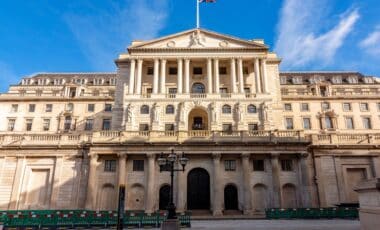Inheritance tax has long been a source of frustration and resentment for many families in the UK, with critics labelling it as one of the most unpopular and unfair taxes in the country. Recent public pressure has reignited the debate over the future of this tax, which is applied to estates valued above a certain threshold. While Labour has not yet committed to specific changes, the growing discontent has sparked discussions within the party about reforming or potentially eliminating the tax altogether. Proposals range from raising thresholds to account for inflation to simplifying the system entirely, with many advocates arguing that the current structure disproportionately impacts middle-income families.
This renewed focus comes at a time when rising property values and stagnant thresholds mean more households are being drawn into the inheritance tax net. As public dissatisfaction reaches new heights, Labour faces increasing calls to respond to this widespread concern and address the financial burdens imposed on grieving families.
Why Inheritance Tax Faces Widespread Criticism
Inheritance tax is currently charged at 40% on the value of estates above £325,000, a threshold that hasn’t been adjusted in line with rising property prices. As a result, many middle-income families, who would not traditionally consider themselves wealthy, now find themselves liable for the tax. Critics argue that this creates unnecessary stress for bereaved families and disproportionately penalises those who have worked hard to pass on modest assets to their loved ones.
John O’Connell, Chief Executive of the TaxPayers’ Alliance, has strongly criticised the tax, describing it as inherently flawed:
“The British public clearly recognise that inheritance tax is an almost uniquely bad tax, given their unanimous support for cutting or abolishing it altogether.”
O’Connell and others argue that inheritance tax is not just unpopular but also fundamentally unfair. The tax often impacts families at a time of emotional vulnerability, compounding the stress of managing estates and funeral arrangements. He added:
“While there are certain reforms—such as lifting thresholds—that could ease some of the pain, it’s becoming increasingly clear that the only acceptable solution in the long term is complete abolition.”
Labour’s Position on Reform
Although Labour has not yet outlined a concrete plan for inheritance tax reform, the issue is gaining prominence within political circles. Proposals being discussed include raising the tax-free threshold to reflect the significant increases in property values over the past decade and simplifying the system to reduce administrative burdens on families.
James Frayne, Chairman of Public First, highlighted the political risks of ignoring public sentiment on the matter:
“For twenty years, polls have shown how much voters detest inheritance tax, but politicians still blunder into raising it, only to be shocked when their ratings go down.”
This growing dissatisfaction has been echoed by organisations like the TaxPayers’ Alliance, which continues to call for the abolition of the tax. O’Connell emphasised that public opinion is clear:
“Our political leaders now need to listen to the electorate that put them in office and scrap inheritance tax once and for all.”
The pressure on Labour to act is further heightened by the fact that inheritance tax contributes a relatively small amount to overall government revenue, raising questions about its efficiency and necessity.
Potential Reforms and Their Impact
Proposed reforms to inheritance tax could take several forms, each with varying implications for families and the broader economy.
Key Proposals Being Discussed:
- Raising the Tax-Free Threshold: Increasing the current £325,000 limit would reduce the number of estates subject to the tax and ease the financial burden on middle-income families.
- Simplifying the Tax System: Streamlining the process could reduce administrative headaches for families managing estates.
- Introducing Full Abolition: Eliminating the tax altogether would address public dissatisfaction but could raise concerns about replacing lost revenue.
While these changes would be welcomed by many, critics of reform warn that eliminating the tax could disproportionately benefit the wealthiest estates. However, proponents argue that inheritance tax fails to meet its intended purpose and instead creates resentment among ordinary households.
The Case for Listening to Public Opinion
The strong public opposition to inheritance tax cannot be ignored. For decades, surveys have consistently shown widespread disapproval, with many viewing the tax as unfair and outdated. Critics believe that continuing to defend or expand the tax risks alienating voters.
Frayne underscored the importance of aligning tax policy with public sentiment:
“Politicians need to learn that ignoring voters’ feelings about inheritance tax is a losing strategy. The tax creates resentment, especially as more families are pulled into its scope due to rising property values.”
For Labour, addressing inheritance tax could provide an opportunity to demonstrate responsiveness to voter concerns while also alleviating financial stress for grieving families. Whether through incremental reforms or more drastic measures, changes to inheritance tax could be a key issue in shaping the party’s economic platform.









